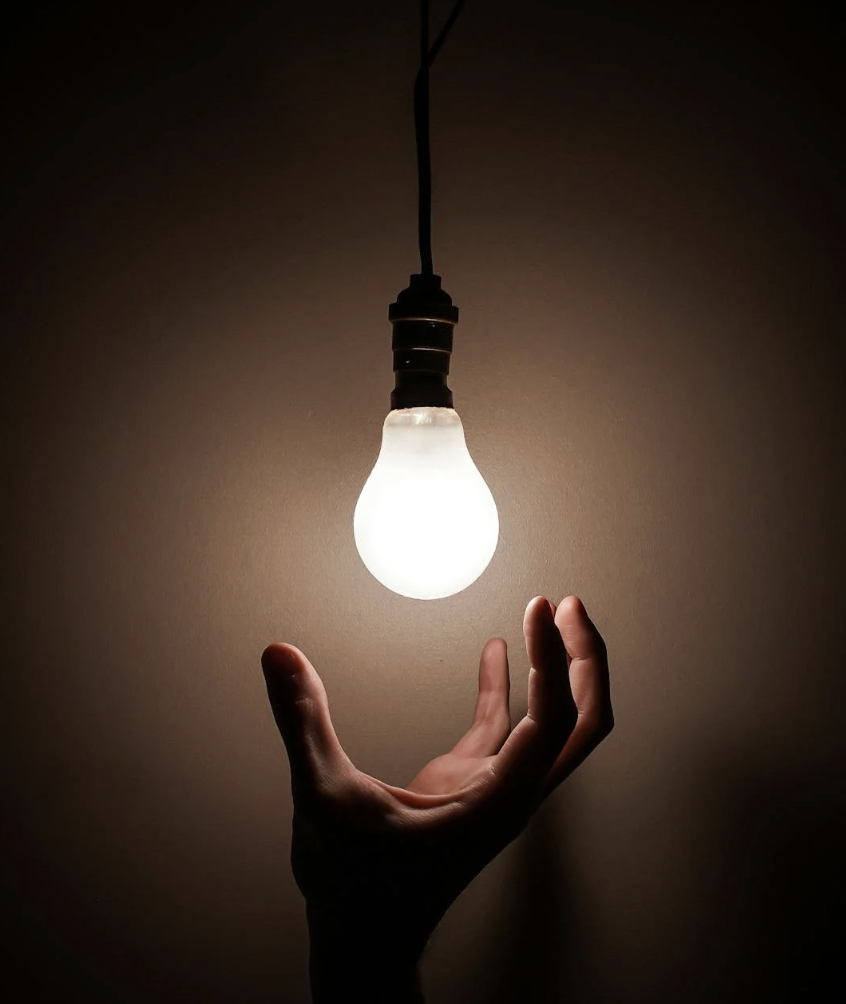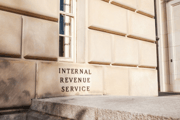
Winter heating bills can feel like a monthly punch to the gut, especially when you're living on a fixed income. If you're among the millions of Americans struggling to keep up with rising energy costs, there's help available that you might not know about—and some of it puts money directly toward your overdue bills without you having to pay it back.
The good news? You're not alone in this struggle, and there are more assistance programs out there than ever before, with many specifically designed to help seniors first.
A nationwide safety net you should know about
The Low Income Home Energy Assistance Program (LIHEAP) provides support to roughly 6.7 million households nationwide.
It’s a federally funded initiative that helps reduce costs associated with home energy bills, energy crises, weatherization, and minor energy-related home repairs.
For many older adults, this program is particularly important because several states give application priority to households with members aged 60 or older.
In some regions, that means seniors can apply earlier than the general public each year, ensuring they get access to limited funds before they run out.
Priority access for seniors
Many states open LIHEAP applications early for seniors aged 60 and older.
Funds are distributed on a first-come, first-served basis, so applying early improves your chances.
Applications typically run through the fall and winter months, depending on your state.
Contact your local Community Action Agency to find your state’s specific deadlines.
Eligibility for LIHEAP depends on income, but the limits are broader than many realize.
Depending on your state, you can qualify if your household income falls between 60% and 200% of federal poverty guidelines.
Also read: Relief is coming: How some eligible seniors can secure up to $150 in energy assistance this fall
Real programs offering real money right now
Let’s look at what’s happening in Maine.
Central Maine Power Co. and Versant Power both operate Arrearage Management Programs (AMP) that forgive up to $300 per month of past-due electricity bills.
Eligible participants must owe at least $500 that’s 90 days or more overdue, and they must also qualify for LIHEAP assistance.
Each month that participants pay their current energy bill on time, the program forgives one-twelfth of their outstanding balance—up to $300 per month.
That means someone who owes $1,200 could have their entire overdue balance cleared within a year, simply by staying current on new payments.
"For each month that program participants pay their current energy bill on time, the program will forgive 1/12 of their past-due balance, up to $300 per month."
In Pennsylvania, the state’s LIHEAP grants range from around $200 to $1,000, depending on household size, income, and heating source.
Meanwhile, PECO’s Customer Relief Fund provides up to $500 credits for families earning between 151% and 300% of the federal poverty level.
This program focuses on those who may not qualify for traditional low-income aid but still struggle to keep up with energy costs.
Also read:Help with rising energy bills: See if your state offers relief
How to get started without getting scammed
Here’s something every senior should know: LIHEAP never charges application fees or gives out direct grants to individuals.
If someone calls, emails, or texts you claiming to offer a LIHEAP grant and asks for money, it’s a scam.
The legitimate way to apply is through your local Community Action Agency.
You can also get information by calling the National Energy Assistance Referral line at 1-866-674-6327 or visiting Energyhelp.us to find resources in your area.
What this means for your monthly budget
Recent surveys show just how serious the problem has become.
About 64% of Americans say their electric and gas bills have gone up compared to last year.
Nearly 63% say those bills are adding financial stress to their lives.
For seniors on fixed incomes, those increases can mean choosing between heating the house and paying for medication.
Programs like LIHEAP and AMP don’t just help—they can mean the difference between staying warm or going without heat during the coldest months.
Did you know?
Did you know?
Applications are processed on a first-come, first-served basis, so applying early in the fall gives you the best chance to receive assistance before funding runs out.
Also read: A simple laundry change that could help cut household energy costs
Beyond the big programs: what else is out there
Many utility companies offer their own assistance programs in addition to federal ones.
These can include special rate discounts for seniors, budget billing plans that spread costs evenly through the year, emergency help for equipment repairs, and home weatherization services to make heating more efficient.
Contact your local utility provider directly to ask about senior-specific discounts and hardship programs.
You might be surprised how many options are available.
Taking action before winter hits hard
Applying for energy assistance usually requires some paperwork, but don’t let that discourage you.
Most Community Action Agencies will help you fill out the forms and submit everything correctly.
You’ll typically need to bring photo identification, your Social Security card, proof of income such as Social Security or pension statements, recent energy bills, and a lease or mortgage statement to confirm residency.
Energy assistance programs for seniors: what you need to know
- LIHEAP serves more than 6 million households nationwide, with priority access for older adults in many states.
- Programs like Maine’s AMP can forgive up to $300 monthly in past-due bills for on-time payments.
- Income thresholds vary by state, so you may still qualify even if you think you earn too much.
- Apply early—funds are limited and distributed on a first-come, first-served basis.
- Never pay anyone who claims to offer a LIHEAP grant; legitimate programs don’t charge fees.
- Call 1-866-674-6327 or visit Energyhelp.us to find your nearest application office.
Also read: Stop overpaying! AC experts reveal the costly mistake adding hundreds to your energy bill
Your next steps
Don’t wait until you get a shutoff notice to seek help.
Many of these programs have limited windows for application, and once funds are gone, they’re gone.
Start by calling your local Community Action Agency or visiting your utility company’s website to see what’s available in your area.
These programs exist because lawmakers recognize that energy costs have outpaced what many Americans can afford.
There’s no shame in applying for help—it’s a resource you’ve earned after decades of paying into the system.
Read next:
- If you get SNAP benefits, you could be missing out on these hidden freebies
- Protect your wallet: Millions of Americans could face sky-high energy bills—avoid a $727 shock
- Essential financial resources for seniors: 25 programs that can help
Have you used energy assistance programs, or do you have questions about qualifying for help with your utility bills? Share your experience or concerns in the comments below—your story might help another reader discover the assistance they need.
Primary Source
https://www.the-sun.com/money/15317744/automatic-credit-october-energy-bill-program-maine-overdue/
LIHEAP - Low Income Energy Assistance Program
Cited text: The program provides heating and cooling assistance to roughly 6.7 million households.
Excerpt: LIHEAP provides assistance to roughly 6.7 million households nationwide
Low Income Home Energy Assistance Program (LIHEAP) | The Administration for Children and Families
Cited text: LIHEAP provides federally funded assistance to reduce the costs associated with home energy bills, energy crises, weatherization, and minor energy-rel...
Excerpt: provides assistance to reduce costs associated with home energy bills, energy crises, weatherization, and minor energy-related home repairs
https://acf.gov/ocs/programs/liheap
Low Income Home Energy Assistance Program (LIHEAP) | Georgia Department of Human Services Division of Family & Children Services
Cited text: The LIHEAP Heating Program typically begins the first workday of December each year for residents aged 65 and older or medically homebound.
Excerpt: many states open applications first for households with members 65 and older
https://dfcs.georgia.gov/services/low-income-home-energy-assistance-program-liheap
Low-Income Home Energy Assistance | Health & Human Services
Cited text: Applications are accepted on a first-come, first-served basis starting October 1 for households with members at least 60 years of age or disabled.
Excerpt: many states open applications first for households with members 65 and older
https://hhs.iowa.gov/assistance-programs/housing-rent-assistance/low-income-home-energy-assistance
Low Income Home Energy Assistance Program (LIHEAP) | Georgia Department of Human Services Division of Family & Children Services
Cited text: The applicant's total gross annual household income needs to be at or below 60% of the State's Median Income.
Excerpt: Income thresholds range from 60% to 200% of federal poverty guidelines
https://dfcs.georgia.gov/services/low-income-home-energy-assistance-program-liheap
Low-Income Home Energy Assistance | Health & Human Services
Cited text: The total household income for an applicant must be at or below 200% of the 2025 federal poverty guidelines.
Excerpt: Income thresholds range from 60% to 200% of federal poverty guidelines
https://hhs.iowa.gov/assistance-programs/housing-rent-assistance/low-income-home-energy-assistance
Apply for the Low Income Home Energy Assistance Program (LIHEAP) | Commonwealth of Pennsylvania
Cited text: You can receive from $200 to $1,000 based on your household size, income, and fuel type.
Excerpt: LIHEAP grants range from $200 to $1,000 based on household size, income, and fuel type
https://www.pa.gov/services/dhs/apply-for-the-low-income-home-energy-assistance-program-liheap
Low Income Home Energy Assistance Program (LIHEAP) | The Administration for Children and Families
Cited text: Notice: The Low Income Home Energy Assistance Program (LIHEAP) does not provide direct grants to individuals; LIHEAP does not charge a fee for receivi...
Excerpt: LIHEAP does not provide direct grants to individuals and does not charge fees for services
https://acf.gov/ocs/programs/liheap
Low Income Home Energy Assistance Program (LIHEAP) | The Administration for Children and Families
Cited text: You may also contact the National Energy Assistance Referral (NEAR) number at 1-866-674-6327.
Excerpt: You can get information by calling the National Energy Assistance Referral number at 1-866-674-6327
https://acf.gov/ocs/programs/liheap






